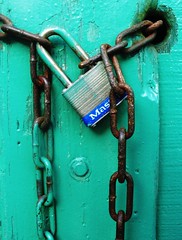 Today, social networking was attacked. The two biggest networks, Twitter and Facebook, have been subjected to denial of service attacks, causing difficulty for millions of people around the world. Other sites including FriendFeed, LiveJournal, Posterous and su.pr have also experienced outages or slow response times. Social networking services have failed before, but never all at once.
Today, social networking was attacked. The two biggest networks, Twitter and Facebook, have been subjected to denial of service attacks, causing difficulty for millions of people around the world. Other sites including FriendFeed, LiveJournal, Posterous and su.pr have also experienced outages or slow response times. Social networking services have failed before, but never all at once.
While the precise causes have yet to be established, it’s clear is that today’s events have had a measurable effect on people across the globe, and the loss of multiple social networks at the same time has highlighted some serious issues and limitations
Disconnect, reconnect
One of the first things that happened is that people flooded to other mediums such as e-mail or instant messaging to discuss what was happening. From the conversations I’ve encountered, it’s noticeable that being unable to tweet or update Facebook has led many people to feel disconnected. The old channels seem to be a poor substitute, limited as they are in audience and reach. Social networks have become an integral part of our lives without us even realizing it. Losing Twitter can be as distressing as your phone line going dead or losing your cable TV feed.
What happened to our address books?
We have been given a wake-up call. We don’t have a single address book for all our friends any more. Some people have been unable to reconnect with their friends because they don’t have their e-mail address or IM name. Do you have the contact details for all the new friends and connections you’ve made on networks such as Facebook and Twitter? If not, you are entrusting your connections to the hope that you will always be able to log on. What happens when you can’t? When the sites are down, it’s too late to do anything about it.
A new kind of lock-in
 In any marketplace, freedom of choice is an important factor. Today’s events highlighted one of the greatest weaknesses of social networks – when they stop working, you can’t easily go elsewhere, because your network is tied to a specific plaform. We use social networks because of who is on there, not because of the tool.
In any marketplace, freedom of choice is an important factor. Today’s events highlighted one of the greatest weaknesses of social networks – when they stop working, you can’t easily go elsewhere, because your network is tied to a specific plaform. We use social networks because of who is on there, not because of the tool.
Like many, I would not choose to use Facebook with its walled garden, data-hoarding approach – but that is where my friends are, so that’s where I go. We are in a new era of lock-in; I cannot leave because I would have to convince all my friends to change with me.
Social networks are walled gardens; it’s time to knock down the walls
We have to separate online identity from our member name in a particular social network, so that we are always contactable. OpenID enables this, but has not been widely adopted. But we need more. If we want to be able to weather storms like today, we need to take back ownership of our entire network of friends, or address book as it used to be called, without being limited by each other’s choice of social network platform.
I have friends who hate Facebook, and others who feel Twitter is not for them. I am acutely aware that I have less contact with those people because of our differing choices. This shouldn’t be allowed to continue. Imagine if I could only call other people if they used the same phone company. We wouldn’t stand for it.
Nobody owns the phone numbers. They’re global. If one provider has a problem, you can keep your number, take your business elsewhere and maintain the same network of friends and colleagues. This is a model that works.
E-mail tells a similar story. Compuserve and AOL had to open up their walled garden e-mail services to compete. Then you could e-mail to or from anyone at any ISP. It’s hard to see how the Internet could be where it is today if closed e-mail had remained the norm. What future innovations are being stifled by closed social networks?
We need a true social network
 In an ideal world, when I meet someone, we should just be able to agree “Yes, we would like to maintain a connection between us,” regardless of our communication or software preferences. The mechanisms to maintain a connection have already been built. We just need a more social solution.
In an ideal world, when I meet someone, we should just be able to agree “Yes, we would like to maintain a connection between us,” regardless of our communication or software preferences. The mechanisms to maintain a connection have already been built. We just need a more social solution.
Our online social networks should mirror real life, the value that people have to us and the role we want them to have in our lives, not our software choices. Social networks have the potential for us to maintain relationships between friends across the world, across timezones, house moves, and changes of school, job or city in a way that was not possible with traditional address books.
Facebook, Twitter, and others offer part of the solution, but for now our hands are tied by closed networks and the lack of a truly social network.






 @
@ Tags:
Tags: 


 Like all images on the site, the topic icons are based on images used under Creative Commons or in the public domain. Originals can be found from the following links. Thanks to
Like all images on the site, the topic icons are based on images used under Creative Commons or in the public domain. Originals can be found from the following links. Thanks to
Great post Alex – I completely agree with your sentiments about the function that social networks should serve. I think in time this is where the Internet is going – this is shown by the increasing amount of API’s that the major social networks are making available.
I actually work for a site that is trying to accomplish this very goal. We launched ZooLoo.com about a month ago with the idea of giving the average Internet user complete control over their online space. Utilizing a variety of those API’s I mentioned, as well as tools we developed ourselves, we allow everyone to manage all of their networks from one completely customizable hub. We also allow anyone to build a quality Web site, that is plugged into to a social network on their own domain name.
I think it’s a really cool concept and that the idea behind it is where the Internet is going – whether ZooLoo is the means to that ends remains to be seen.
Hi Aaron
Thank you for your comment.
I just had a brief play with ZooLoo, it seems quite similar to “web dashboard” services such as iGoogle, NetVibes and Protopage.
Maybe I missed something, could you explain how ZooLoo helps with the problem I described, ie letting people control their own social network? It seems like just a social network aggregator combined with a blogging, hosting & microblogging services.
Thanks
Alex
[…] too – establishing a two-way connection between two people, represented electronically, without needing to exchange addresses). Some standards exist, such as XMPP for chat, VOIP for Internet telephony and Wave for […]
[…] my digital social life. If I leave, I will be cut off from my friends. It’s like Facebook owns my address book, and I’m not allowed to check it without her breathing down my […]